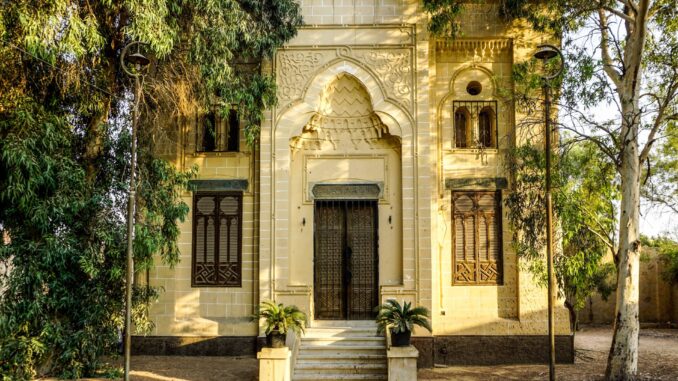
The Turab Al Ghafeer graveyard, home to Heba Al Khatib’s* family for generations, still stands along the Salah Salem highway, one of Cairo’s arterial roads.
Al Khatib’s father’s side of the family lived on the grounds of what is now the graveyard for centuries and many of their relatives remain buried there to this day.
But it is now one of many monuments and mausoleums under threat of demolition, as the private graves of families and the tombs of notable figures in Egypt’s history in the area are razed to make way for development projects, most recently a new highway.
The graveyard is part of the Egyptian capital’s City of the Dead, also known as the Cairo Necropolis or al-Qarafa, a vast network of necropolises and cemeteries dating back to at least the seventh century, which has seen numerous changes over the last three years to make way for new main roads and flyover bridges the Egyptian government says will improve traffic in the megalopolis.
But the site is not just home to ancient mausoleums and monuments – it is also home to many of Cairo’s poor, who for generations have been pushed out to the margins of the megacity.
Al Khatib grew up a stone’s throw away from the City of the Dead and spent time doing charity work for many of the families that have been living there for generations.
She was eventually forced to leave Egypt due to her media work but her parents still live near the site and, for the past three years, they have watched parts of the City of the Dead demolished for the new construction, and have also witnessed poor families forced to leave their homes.
As pressure built and housing prices rose in Cairo in the face of intensifying urbanisation over decades, families who could not find a place to live or who managed to find work tending graves began moving into the City of the Dead.
To find living space among the dead, they would convert parts of the older mausoleums or the fenced-in family burial “yards” – which usually had at least one closed room in them already – to accommodate them.
The new highway has the Al Khatibs worried about their family’s graves but, like many others with private plots there, they do not feel they can intervene.
“There’s nothing that anyone can do once the government decides a site needs to be demolished,” Al Khatib told Al Jazeera.
“[My parents] know they’re powerless … they’re also afraid of the consequences of objecting to the government and the crack[down] on any form of opposition,” she added.
“It’s a battle not worth fighting for many people there.”
Ancient mausoleums, the homes of some of Cairo’s poor, are threatened by development projects in the City of the Dead.
ENB Top News
ENB
Energy Dashboard
ENB Podcast
ENB Substack
